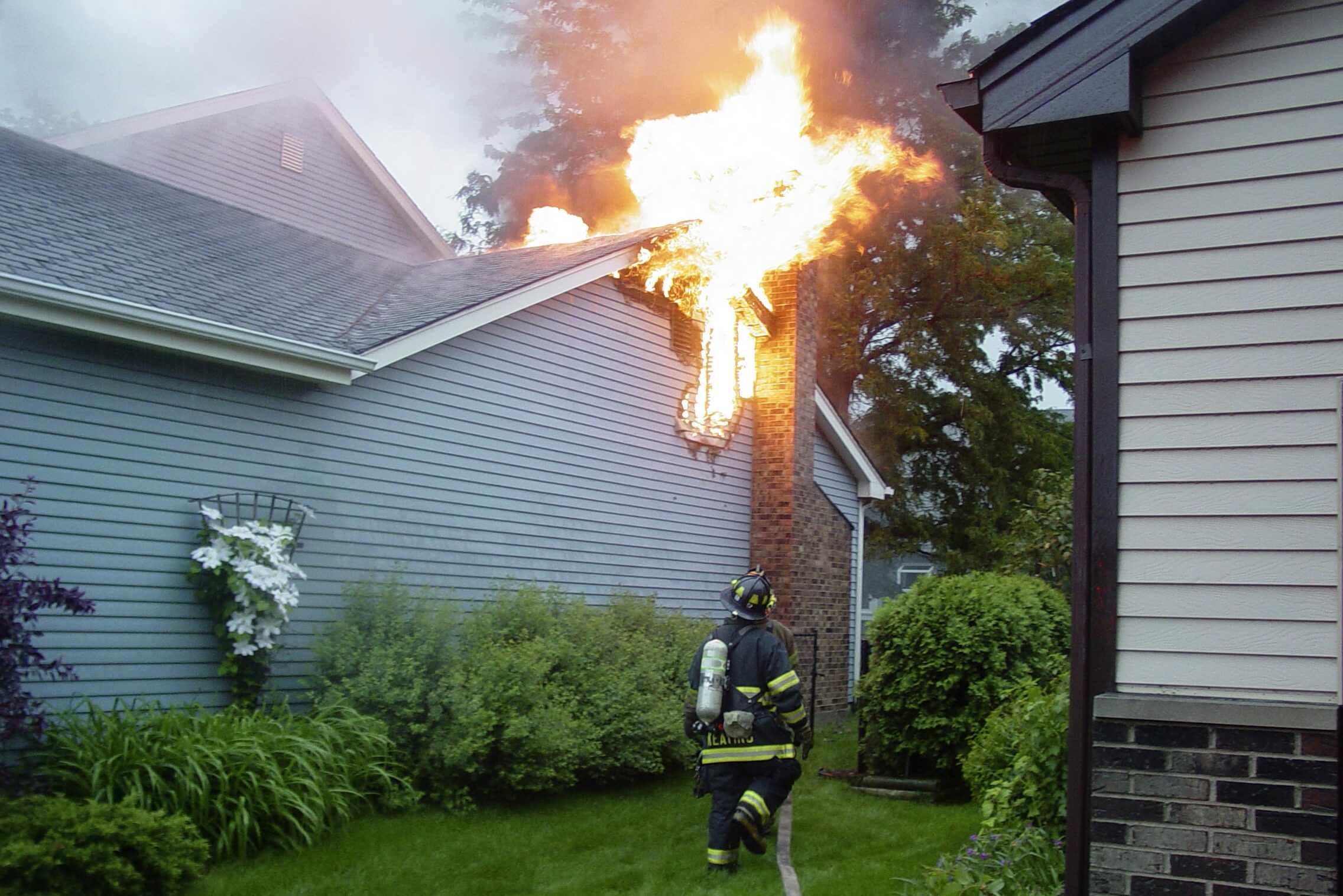Ensuring that your home is safe from potential fire hazards is crucial for the protection of your family and property. In this section, we will explore essential fire damage prevention tips that will help enhance your home safety measures. By implementing these tips, you can significantly reduce the risk of fire and safeguard your loved ones.
By conducting regular home inspections and maintenance, you can significantly reduce the risk of fire damage in your home. Remember to keep your home free of potential hazards, maintain your heating and chimney systems, and regularly clean your kitchen appliances. Stay on top of these maintenance tasks to ensure the safety of your home and loved ones.
Key Takeaways
- Implementing fire damage prevention tips is crucial for your home safety.
- Install smoke alarms and carbon monoxide detectors to provide early warning signs in case of a fire or carbon monoxide leak.
- Develop an emergency escape plan that includes multiple exit routes and a designated meeting point outside your home.
- Regularly inspect your home for potential fire hazards, including electrical wires, flammable materials, and kitchen appliances.
- Have your heating system and chimney inspected and cleaned annually by professionals to reduce the risk of fire.
Install Smoke Alarms and Carbon Monoxide Detectors
Protecting your family from potential fire hazards starts with ensuring your home is equipped with functioning smoke alarms and carbon monoxide detectors. These devices provide early warning signs in the event of a fire or carbon monoxide leak, giving you and your loved ones valuable time to escape safely. Don't overlook the importance of regularly testing these devices to ensure they are in proper working condition. Consider installing interconnected smoke alarms, so that when one alarm is triggered, they all sound, providing you with an even quicker warning in case of an emergency. When it comes to carbon monoxide detectors, make sure to install one on every level of your home and near sleeping areas. Carbon monoxide is an odorless, colorless gas that can be fatal, so make sure to check the batteries in your detectors regularly. Remember, installing smoke alarms and carbon monoxide detectors is a crucial first step in fire damage prevention. Make it a priority to regularly test and maintain these devices to keep your family safe.Develop and Practice an Emergency Escape Plan
Creating and practicing an emergency escape plan is crucial in case of a fire. This plan should include multiple escape routes from each room and designate a meeting point outside your home where everyone can gather after evacuating. Make sure everyone in your household is aware of the plan and regularly practice it. When designing your escape plan, consider the following tips:- Draw a floor plan of your home and mark all possible escape routes
- Make sure all windows and doors in your home can be easily opened
- Assign a person to assist anyone who may need help during the escape
- Teach children how to open windows, unlock doors, and crawl low under smoke
Conduct Regular Home Inspections and Maintenance
Regular home inspections and maintenance are crucial to preventing fire damage. Take the time to inspect your home for any potential fire hazards regularly. Here are some tips to keep in mind:| Home Inspections | Maintenance |
|---|---|
| Check electrical wiring for any signs of damage, such as frayed cords or broken plugs. | Keep your heating system clean and well-maintained by having it inspected and cleaned annually by professionals. |
| Ensure that flammable materials are stored correctly, such as gasoline and propane tanks. | Keep your chimney clean and well-maintained by having it inspected and cleaned annually by professionals. |
| Avoid overloading electrical outlets with too many appliances. | Regularly clean your kitchen appliances, including the stove, oven, and microwave, to avoid grease buildup that can ignite a fire. |
| Test your smoke alarms and carbon monoxide detectors monthly to ensure that they are functioning correctly. | Be mindful of landscaping close to your home, such as dry leaves or overgrown shrubs, which can ignite quickly and cause a fire. |
Conclusion
Protecting your home and family from potential fire hazards should be a top priority. By implementing the fire damage prevention tips outlined in this article, you can significantly reduce the risk of fire and safeguard your property and loved ones. Installing smoke alarms and carbon monoxide detectors, developing an emergency escape plan, and conducting regular home inspections and maintenance are essential steps towards ensuring your home safety. Remember to regularly practice your emergency escape plan with your family and designate a meeting point outside your home. Don't wait until it's too late - take action today to enhance your home safety measures and prevent fire damage. Your family's safety and well-being are worth the effort and investment.FAQ
What are some essential fire damage prevention tips for home safety?
Implementing these tips can help enhance your home safety measures and protect your family from potential fire hazards.
Why is it important to install smoke alarms and carbon monoxide detectors?
Smoke alarms and carbon monoxide detectors provide early warning signs in the event of a fire or carbon monoxide leak, giving you and your family valuable time to evacuate safely.
How can I develop and practice an emergency escape plan?
It is crucial to have a well-thought-out emergency escape plan that includes multiple exit routes from each room. Regularly practice this plan with your family and designate a meeting point outside your home where everyone can gather after evacuating.
Why is conducting regular home inspections and maintenance important for fire damage prevention?
Regularly inspecting your home for potential fire hazards, such as damaged electrical wires, improper storage of flammable materials, and unclean kitchen appliances, can significantly reduce the risk of fire. Additionally, annual inspections and cleaning of your heating system and chimney by professionals can further minimize the risk of fire.
How can I reduce the risk of fire in my home and protect my family and property?
By implementing these essential fire damage prevention tips, including installing smoke alarms and carbon monoxide detectors, developing an emergency escape plan, and conducting regular home inspections and maintenance, you can significantly reduce the risk of fire in your home and ensure the safety of your loved ones.





